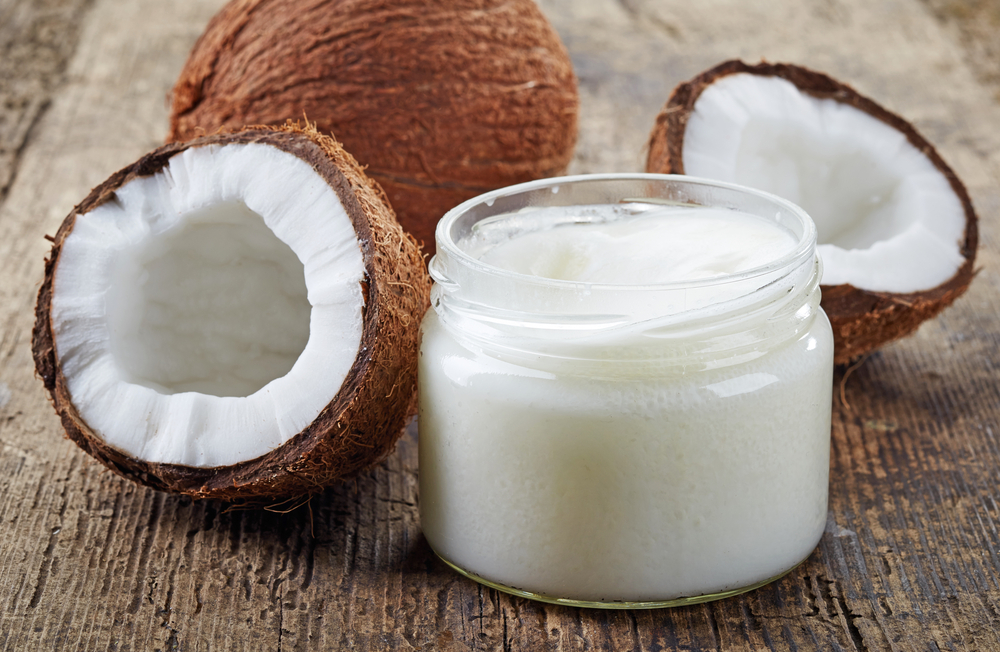Coconut oil is under attack. Once hailed as a miraculous superfood, its reputation has been more than a little bruised after a Harvard professor described the substance as “pure poison”. To remove any doubt about her feelings, Karin Michels, an epidemiologist, added that coconut oil is “one of the worst things you can eat”.









Pure poison? Well it won’t kill you instantly, eyes popping, foaming at the mouth, gasping for breath – nothing quite as dramatic as that.
So how can such a natural plant product be regarded as being so dangerous? After all, it looks so innocent, with its white flesh and refreshing liquid centre providing an exotic taste of tropical beaches, as well as minor amounts of minerals (potassium and iron), some fibre and fat.
It has also been a long standing and popular ingredient in sun cream and shampoo and skin products. But it is edible coconut oil that has grabbed centre stage recently for its supposed health benefits. Products containing coconut oil and recipes using it are becoming ever more popular. A quick web search will provide numerous suggestions for including more coconut oil in your diet by using it in cooking and baking and even mixing it into tea, coffee and smoothies.
With claims of health benefits including weight loss, increased “good” cholesterol, improved immune function and even prevention of Alzheimers disease, it is easy to see why the public would be swayed to swap their usual household oils and fats for this incredible sounding product.
Not even the high price tag seems to deter buyers (one British supermarket is currently selling it at £1.36 per 100ml compared to vegetable (rapeseed) oil at 11p per 100ml and olive oil at 30p per 100ml).
The debate is still open.
I personally am a big fan of coconut oil. I’ve ‘drank the cool-aid’ a bit. I put it in my morning coffee, and use it in cooking and baking. I think it adds a nice coconut taste to food and, though the jury is still out on whether frying with vegetable and/or olive oil is bad for your health due to the production of toxic chemicals called aldehydes during the heating process, I prefer to play it safe and use a saturated fat, coconut oil, that won’t denature.
That is what I think but I have presented two differnt expert opinions below to provide a bit more perspective on this matter. A lot hinges on whether saturated fats are considered bad for your health and a contributing factor in obesity, heart and other diseases. As I said, I come down on the side of animal fats being healthy. TBH, that could be confirmation bias because I am a big fan of eating meat (ecological debates aside), but until this is conclusively proven, I will stick with my biases.
First, I will present a video featuring the pro saturated fat stance by Dr Aseem Malhotra, cardiologist, author, researcher, campaigner and Professor of Evidence-Based Medicine, Escola Bahiana de Medicina e Saúde Pública (Bahian School of Medicine and Public Health) from The Daily Mail in which he slams Professor Karin Michels’ claim coconut oil is poison as talking ‘unscientific nonsense’, and asked her to apologise for her ‘entirely false’ claim and to publicly retract it.
Then, I will present the argument that you do need to be careful with coconut oil and saturated fat by Emma Kinrade, Lecturer in Nutrition and Dietetics, Glasgow Caledonian University originally in The Converssation UK.
Coconut Oil Isn’t Poison, It’s Nectar, According to a Renowned Cardiologist
Dr Malhotra said:
Last week, Professor Karen Michels of Harvard made international headlines with a claim that coconut oil is pure poison.
Having reviewed the totality of the evidence, I can tell you categorically that this claim is entirely false… I would say it’s unscientific nonsense.
I call on Professor Michels, as a matter of urgency, to publicly retract her comments and make an apology.
Dr Malhotra added if she didn’t, she would,
risk sending the reputation of Harvard, a great institution, into disrepute.
Dr Malhotra claims saturated fat does not necessarily increase the risk of heart disease. He argues that cutting saturated fat from diets has led it to be replaced with sugar and carbohydrates, which are fueling obesity. Having spent many years researching and publishing on the effects of diet on health, he believes that saturated fat and cococut oil can be very much part of a healthy diet.
Is there a study that a study that has shown coconut oil does not have a bad effect on cholesterol levels?
Dr Malhotra points to Cambridge University research earlier this year that delved into the effects of extra virgin coconut oil on cholesterol levels.
Professor Kay-Tee Khaw’s group compared its effects with olive oil on 94 participants, for the study published in the British Medical Journal Open. They were split into three groups and every day for four weeks ate 50g of coconut oil, 50g of olive oil – proven to lower LDL cholesterol – or 50g of butter.
This much coconut oil contains around 40g saturated fat, twice the recommended daily amount for women, according to Public Health England. The group who ate butter saw their LDL cholesterol levels rise by around 10 per cent. But no such rises were shown for the coconut oil or olive oil groups.
Even more surprisingly, while butter and olive oil both raised HDL cholesterol by 5 per cent, coconut oil raised it by a staggering 15 per cent.
Dr Malhotra has stated that in terms of long-term effects of saturated fat, which coconut oil contains a high percentage, that most up to date evidence reveals there is no adverse effects on the development of heart disease or increased risk of death. That is, coconut oil does not equate to poison.
Read more:
7 Reasons For Eating More Saturated Fat
In 2017, Dr Malhotra and two other leading cardiologist, Rita F Redberg and Pascal Meier published an editorial in the British Journal of Sports Medicine making it clear that Saturated fat does not clog the arteries: coronary heart disease is a chronic inflammatory condition, the risk of which can be effectively reduced from healthy lifestyle interventions such as a diet low sugar and ultra processed foods, doing low intensity exercise 30 minutes per day or medium to high intensity exercise 75 minutes per week, meditation and sleep.
Coconut oil: not quite poisonous, but best treated with caution
Emma Kinrade, Glasgow Caledonian University
Coconut oil: The fats of the matter
But looking more closely at these apparent health benefits, we can see that most claims derive from studies, which to date, are based on animal or in-vitro (laboratory) studies.
By far the biggest negative for coconut oil is the fact that it is so very high in saturated fat. As much as 86% of it is made up of the type of fat that we have been urging people to cut down on in their diets due to its proven association with raised “bad” cholesterol and heart disease.
Even butter, that long standing enemy of heart health fanatics, looks healthy compared to the fatty acid profile of coconut oil, at 52% saturated fat. Olive oil comes in at 14% and rapeseed is 7%.
A taste of the exotic? Shutterstock
So why, after decades of promoting the evidence-based health benefits of replacing saturated fats with unsaturated fats, such as olive, rapeseed and sunflower oils, has this product soared in popularity? Perhaps it is the taste that people like (though I’m not convinced it’s that good). Or the fact that it seems like an exotic and trendy ingredient, and people are still unconvinced about the risks of saturated fat (despite professional advice not changing for years).
Coconut oil fail
Whatever the reason, timely draft reports currently being finalised from the UK’s Scientific Advisory Committee on Nutrition and the World Health Organisation continue to endorse the dietary guidelines of restricting intake of saturated fat to less than 10% of total energy intake (around 20g for women and 30g for men per day).
Using as little as two tablespoons of coconut oil in the daily diet will smash this target to pieces, providing 26g of saturated fat as well as around 200 calories.
Do I use coconut oil in my kitchen? Definitely not. But the odd can of (reduced fat) coconut milk for a Thai curry or bag of desiccated coconut for home baking can be found lurking in my larder.
No single food is a “superfood”. It is the overall balance of our intake that matters. As with any high fat product, coconut oil should be used sparingly, only occasionally and as a minor ingredient, rather than as a replacement for staple oils such as rapeseed, olive and sunflower oils. Coconut oil is not strictly speaking a poison – but nor is it something which should pass our lips without caution.
There you have it! The debate continues but, as I said above, I come down more on the side of Dr Malhotra and the other proponents of a diet and lifestyle that reduces chronic inflammatory condition by eating a diet low sugar and higher in fat.
You make up your own mind, but don’t wait for the debate to be settled. It may be too late.
Enjoy!
Scott


